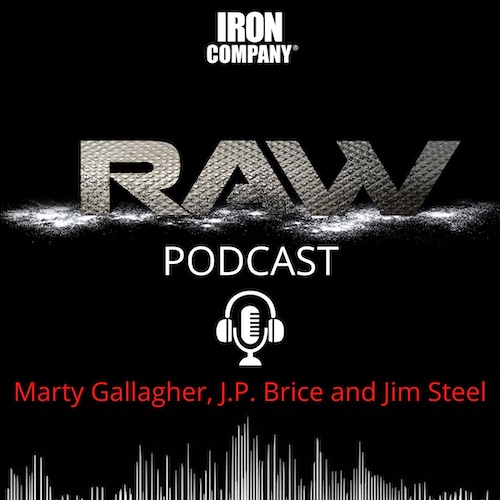
Get Ripped and Ready for Summer
Summertime Workout and Diet
Now is the time. It's time to hit it hard. Time to get ripped and ready for summer! You've eaten your rich foods during winter, hit the hibernation mode for a few months. You put on some unwanted fat and now, with the warmer weather approaching, you need to lose some of the additional adipose tissue and get ready for the beach or for a wedding or for any weight loss/muscle gain goal that you have set for yourself.
There are two ways that we can do this transformation when it comes to diet. You can either start off by starving yourself or you can do it slowly and make small changes as you go. What you must do is to be honest with yourself. What diet can you stick with for a long period? For life? Ask yourself those questions and then get rolling. The smart way, the way gives you the best chance of making it is to go slowly.
I am going to share with you what worked for me when dieting and for others that I have trained. I am not a nutritionist or dietitian; this is just what I have done and done with others to drop fat for a goal.
I want this article to be different. I want it to fire you up to succeed but also give you some mental tips on how to handle it when it gets tough. Let’s start with the mental side of the diet first, as I am convinced that it is a huge part of losing weight.
First off, know that you can do it. Know that millions of people have transformed themselves. None of them were special. Losing weight is something that everyone can do, regardless of genetics. All it takes to kick ass at this is to start off with motivation (your impetus to reach your goal), and then when motivation starts to wane (it always does), conjure up the discipline to push yourself through the tough times when you don’t “feel like” training or dieting.
Don't beat yourself up over the fact that you have gained some fat. You also put on muscle during the cold months and now it's time to reveal it with a well thought out exercise and diet plan. Don’t look back and question why you gained the weight or how far you have to go now that you have gained weight. That is over with and you are only moving forward.
Focus on how you want to look. Write your goal weight on a post-it note on the refrigerator or bathroom mirror. Put a picture up of the ideal body that you aspire to look like on your bedroom mirror. Put notes on the refrigerator with motivational quotes to keep you going, anything that you need, that you as an individual respond best to.
Watch videos that keep you going. Former Navy Seal Jocko Willink has tons of videos on You tube that will fire you up. I love it when he says, “When your mind doesn't want to train, tell it that it doesn't get a vote, that the body is taking over today.” or “ What do I do when I don't “feel” like hitting the gym? I'll do it anyway.” Follow his Instagram for more motivation. He also has a book, Discipline Equals Freedom, that goes over dieting and workout motivation and how to sustain it. It is a great book. When I was the head strength coach at Penn, every football player received a copy of Jocko's book. Former Navy Seal, David Goggins has the same type of stuff, as does Joe Rogan.
When the going gets really tough, have conversations with yourself. Say to yourself, “I can do this”. Tell yourself to take it one day at a time, and if that does not work, take it one meal at a time. I talk to myself all of the time when on a diet. For instance, I love beer, but when I am dieting, it conflicts with my goals, so I cut beer out. When I really want a beer, like on a summer day when I am grilling, I remind myself how just one beer makes me feel awful, how alcohol affects my training the next day, and how I always get irritated at myself the next morning after drinking.
Another issue that sometimes arises when attempting to stay on a diet is the “I screwed up” situation, where you go off of the diet for a meal and then, since you did that, you blow the whole thing because you went off the rails a bit. This happens all the time in my experience. The dieter figures that since they cheated, that they should just give in and eat like crazy for the rest of the day or give up on the diet altogether. Don’t do it! Just get right back on the diet on the next meal. You probably won't gain weight from the cheat meal anyway. And if you do, so what? Don't beat yourself up about it. Just tell yourself that you made a mistake and you will do your best not to do it again. In the big scheme of the diet, the consistency that you have shown is what will win out in the end. This is a tough one, because as soon as the dieter messes up, they often get depressed and give up entirely. Fight this feeling with all of your might! Just get right back on the diet like it never happened.
There are so many mixed messages out there, too many books and videos that tell the wannabe dieter that they can eat whatever they want on a certain diet and not gain weight. BULL. No matter if it is high carb, low carb, Weight Watchers, vegan, Paleo or the Zone, you still have to deprive yourself of calories, burning up more than you take in.
So, where to begin? You have to give yourself the time to lose fat. And this depends on how much you have to lose. Let’s just say that you need to lose 20 pounds, and you have 12 weeks to lose it. That’s a good amount of time to get the weight off, enabling you to start slowly and then ramp it up as you gain momentum.
You don’t have to decide on a specific type of diet with macro breakdowns to begin. Here is how I like to begin dieting. I start off by cutting back on “regular foods'', which means I eat less of what I am eating now. So instead of having two sandwiches, I have one, instead of having 4 beers, I have 2. That is usually good for a 3-5 pound loss the first week, and I can feel the momentum start to get rolling. I usually will keep this type of dieting up for 2-4 weeks and then I will switch to a more structured way of eating. You can stay with eating that way the whole way through to reach your goal. If you do that, great, but you take the chance of losing muscle pretty quickly unless your day to day diet was clean already. Mine usually isn’t, so to slow down some muscle loss (as well as energy loss), I switch from cutting back the regular foods to a diet that is easier for me to track the breakdowns of the foods that I eat.
I usually set up the second phase of the diet where I set my macros. Meaning that firstly, I make sure to get my protein in at every meal, with all the meals combined to equal around 1 gram of protein per pound of lean body weight. I usually stick to the same protein source for a while here, and it is usually ground beef. Beef makes me feel full for longer because of the fat content. I then add in a source of complex carbohydrates, like sweet potatoes. For the carbs, I start off with a sweet potato at every meal, and then as the weeks go on, I will cut back on the sweet potatoes (usually taking one off of the evening meal first), as the weeks go on, and depending on how I look. Green veggies are unlimited throughout the whole diet. Carbs to start off are probably 50-100 grams higher than my protein intake, and as the weeks go on, they become closer to equal, and then finally the last few weeks, the carbs are around 50-100 grams total a day, especially if I am not dropping fat fast enough.
Throughout the diet I also add in medium chain triglyceride (MCT) oil. It seems to help me with my energy level and cognitive function as the diet progress I also supplement with fish oil daily. As I get closer to the goal day, maybe 4 weeks out, I switch my protein source to fish, usually flounder. This is like eating air, but it is necessary to strip off the last bits of stubborn fat. So basically, it all works like this: You are dieting from general to very specific, from regular foods to specific foods as you get closer to your goals. Your carb source is what you adjust as you get closer to the goal. Losing weight too fast? Keep the carbs up some or even add some. Losing weight too slowly? Reduce the carbs, always keeping protein the same. Switch to lower calorie protein if needed. Keep fats in there by supplementing or adding in MCT oil or an avocado or two a day. I never kept track of my fat grams, I always figured that with the ground beef and fish oil that I was covered in that regard.
As far as the weight training goes during a diet, keep training as heavy as you can with good form. Too many folks go to light weights when they start to diet. You may get weaker as the weeks go on but do your best not to get soft and have easy workouts, which may cause you to lose muscle at a faster rate. You don’t need to train all day long. Get in and out in 45 minutes to an hour and go recover.
Cardio training is important, but don’t go crazy with it right away, just start off with 30 minutes daily of walking, biking, elliptical, etc., then add in more sessions if needed as the weeks go on. You may be able to stay at 30 minutes a day if your body is responding well to the diet. And don’t go crazy with the intensity. Leave that for the weight room. Work up a good sweat at medium intensity, like you could have a conversation with someone, but it wouldn't be that pleasant for you to have. Use the cardio like you used the carbs; add or subtract session and time according to how the weight loss is going.
The outline of the diet is simple, but not easy. Starting and staying on a diet, going against what your mind and body is telling you to do (rest and eat) and persevering no matter what is tough, but oh so rewarding.
Set your goal, stay fired up and stick it out. Reaching your weight loss goal will be totally worth it.
Photo Credit: Keri Brice of KB Fitness in Charlotte, NC
About The Author - Jim Steel
Jim Steel has been immersed in athletics and the Iron Game for most of his life. He has been a college football player and coach, powerlifter, Muay Thai fighter and is currently a competitive bodybuilder. In 1999, Steel was named Assistant Strength and Conditioning Coordinator at the University of Pennsylvania, and moved up to Head Strength and Conditioning Coordinator in 2004. He is the owner of the blog Basbarbell and is a motivational speaker, frequent podcast guest and the author of two books, Basbarbell Book of Programs and Steel Reflections. Steel is a Certified Strength and Conditioning Specialist with the National Strength and Conditioning Association. Jim Steel is co-host of the RAW with Marty Gallagher Podcast along with Marty Gallagher and J.P. Brice and is a monthly content contributor at IRON COMPANY.



